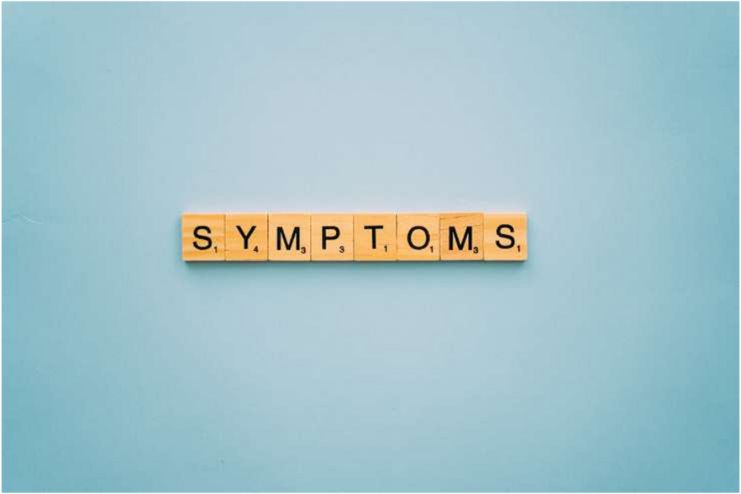Affiliate Disclaimer
Some links in this article are affiliate links. We may earn a small commission if you make a purchase through these links, at no extra cost to you. We only recommend products we find useful to our readersAlthough heart health is a universally important topic, women’s heart health requires a more focused approach. Heart disease continues to be the world’s most significant cause of mortality for women, although being frequently overlooked by other health issues.
Despite being perceived as a “man’s disease,” heart disease continues to be one of the most significant causes of death for women in the United States, taking the place of all malignancies and accidents. Each year, heart disease claims the lives of over 400,000 women.
Preventative action is not an option; it is a requirement. Educating women about heart health, identifying early warning signals, and encouraging a wellness-focused lifestyle can save numerous lives.
Related Articles: The Importance of Regular Heart Check-ups: Early Detection and Prevention
Understanding Heart Disease in Women

Despite being perceived as a primarily male problem, heart disease is a subtle but deadly enemy for women. Its symptoms are particularly complex and unusual in women, which makes it more challenging to identify and frequently more hazardous.
The most prevalent kind of heart disease in both men and women is coronary artery disease, often known as coronary heart disease. It develops gradually over time as plaque, a sticky material, accumulates in the arteries supplying blood to the heart muscle. The plaque restricts or stops the cardiac muscle’s blood flow.
It caused the deaths of 310,661 women in 2021, or around one out of every five females. Merely 56% of American women are aware that heart disease is the leading cause of death for them.
If you know the facts regarding heart disease, including its symptoms, indicators, and risk factors, you can take preventative measures and, if necessary, seek appropriate treatment.
Which Heart Conditions Affect Women?

Any heart illness can affect women. However, some forms of heart disease are less prevalent but still impact women:
Coronary Microvascular Disease: Chest pain caused by spasms (sudden tightening) in the heart’s tiniest arteries that restrict blood flow. Usually, it occurs when you’re sleeping or doing everyday tasks. This dangerous illness raises your chance of heart attacks and other heart conditions.
Broken Heart Syndrome: Severe chest pain or symptoms that resemble a heart attack. The tension of strong emotions such as intense sadness, rage, or astonishment brings it on. Even if you’re healthy, it can still happen.
Variant Angina: It is an uncommon form of severe chest pain brought on by cardiac artery spasms. During sleep, the pain typically occurs in a rhythm. Rarely does the variant angina result in a heart attack.
Related Articles: Empowering Women: Understanding Hormonal Changes Throughout Life Stages
Preventive Strategies

Adopting a lifestyle that protects your future and nurtures your heart is more important than simply making changes to prevent heart disease. Taking a proactive stance can profoundly impact women who frequently fail to recognize tiny threats.
- Control existing medical issues, such as high blood pressure, high cholesterol, and diabetes. Consult a healthcare professional to determine the best course of therapy.
- Choose nutritious meals and snacks to help prevent heart disease and its complications. Reduce intake of processed foods and increase your intake of fresh produce.
- Reducing your intake of salt (sodium) can also help lower blood pressure.
- Maintain a healthy weight and engage in regular physical activity. You don’t have to finish all the activities at once, and it’s acceptable if you don’t enjoy going to the gym. A straightforward method to begin could be to go for a walk. Discuss with your healthcare practitioner how much exercise is appropriate for you.
- Choose foods that are good for your heart. For instance, you can increase your whole grain intake, reduce your added sugars and saturated fat intake, and eat fruits and vegetables with every meal. You can also select the leanest cuts of meat and healthfully cook them.
- Avoid excessive alcohol consumption, as it may cause your blood pressure to rise.
You can lower your risk by acting right now. The U.S. Food and Drug Administration has resources to teach women of all ages how to safely prevent and treat heart disease using FDA-approved medications and devices.
Related Articles: Unlocking Wellness: 7 Essential Health Screenings Every Woman Should Prioritize
Recognizing Symptoms and Seeking Help

Men and women have many of the same heart disease symptoms, but women also experience those that are less common or visible. The most prevalent signs of various forms of heart disease in both sexes are:
- The sensation of an elephant sitting on one’s chest describes chest pressure or discomfort.
- Extreme exhaustion, sometimes called “vital fatigue,” or exhaustion that prevents one from performing daily tasks like making a bed.
- Pain that travels into the jaw or down the left arm.
- Swelling in the abdomen, foot, and legs.
- Heart palpitations.
However, not all heart disease patients, particularly women, exhibit all or even the majority of these symptoms. According to Lisa Freed, MD, director of the Women’s Heart and Vascular Program, a division of Yale Medicine’s Heart and Vascular Center, “You can get nausea or shortness of breath without the chest discomfort.”
Related Articles: Lack Of Sleep In Women Enhance Risks Of Obesity And Heart Disease
Lifestyle Modifications for Heart Health

The strength and vitality of your heart, which is more than simply a muscle, are determined by your daily choices. It is the beat of your life. Developing heart-healthy lifestyle choices involves a lifetime commitment to wellbeing, not simply a temporary fix:
- A whole-food, plant-based diet should be one of your nutrition priorities. Limit processed and fast food from restaurants, avoid added sweets, and consume less meat, dairy, and cheese.
- Maintaining a healthy lifestyle and heart requires physical activity. According to the Centers for Disease Control & Prevention (CDC), we should exercise for at least 30 minutes five days a week (150 minutes per week).
- Other factors affect your heart besides exercise and proper diet. Getting the necessary sleep significantly impacts overall health and wellness. Combining a nutritious diet and regular exercise can achieve the restorative sleep required for cardiovascular health.
- Everybody experiences stress differently, and it can affect them in different ways. Understanding how to handle stress is critical because it can result in a wide range of health issues.
- Diabetes is a chronic illness that lasts for a lifetime. Diabetes significantly increases your risk of heart attack and heart stroke, even when your blood glucose levels are controlled. If you have diabetes, regular checkups with your doctor are very crucial to helping you manage your blood sugar.
- Consuming too many calories and not exercising enough might raise your risk of becoming overweight or obese. Losing weight is a big challenge for many people. However, you can lower your risk even if you lose only 5% to 10% of your body weight. Losing weight can help lower cholesterol and high blood pressure.
- According to research, socially connected people are happier and healthier. Good social relationships reduce anxiety, depression, and severe mental illness, all of which reduce the risk of heart disease.
Conclusion
Your heart is the foundation of your health; therefore, taking care of it is a gift that will keep coming. Heart disease presents particular difficulties for women, but these risks can be controlled and reduced with knowledge and effort.
From recognizing mild symptoms to embracing lifestyle changes, every small step matters. Staying ahead of such problems requires routine examinations and honest contact with medical professionals.
To protect your heart, arm yourself with information and adopt preventative measures. After all, a robust heart builds a whole, satisfying life.
References
- https://www.hopkinsmedicine.org/health/wellness-and-prevention/a-womans-guide-to-beating-heart-disease
- https://www.mountsinai.org/about/newsroom/2014/top-10-things-women-need-to-do-to-protect-their-hearts
- https://www.wakehealth.edu/stories/womens-heart-health
- https://www.mayoclinic.org/diseases-conditions/heart-disease/in-depth/heart-disease-prevention/art-20046502
- https://medlineplus.gov/heartdiseaseinwomen.html
- https://www.cdc.gov/heart-disease/about/women-and-heart-disease.html
- https://www.cdc.gov/heart-disease/prevention/index.html
- https://www.fda.gov/consumers/consumer-updates/tips-women-prevent-heart-disease
- https://www.mayoclinic.org/diseases-conditions/heart-disease/symptoms-causes/syc-20353118
- https://my.clevelandclinic.org/health/diseases/17645-women–cardiovascular-disease
- https://www.who.int/news-room/fact-sheets/detail/cardiovascular-diseases-(cvds)
- https://www.yalemedicine.org/conditions/heart-disease-women
- https://www.emoryhealthcare.org/stories/heart-health/lifestyle-changes-can-transform-your-heart-health
- https://www.cdc.gov/physical-activity/php/about/index.html
- https://www.tmh.org/healthy-living/blogs/healthy-living/6-lifestyle-changes-to-improve-your-heart-health
- https://www.heart.org/en/health-topics/heart-attack/life-after-a-heart-attack/lifestyle-changes-for-heart-attack-prevention
In this Article


















